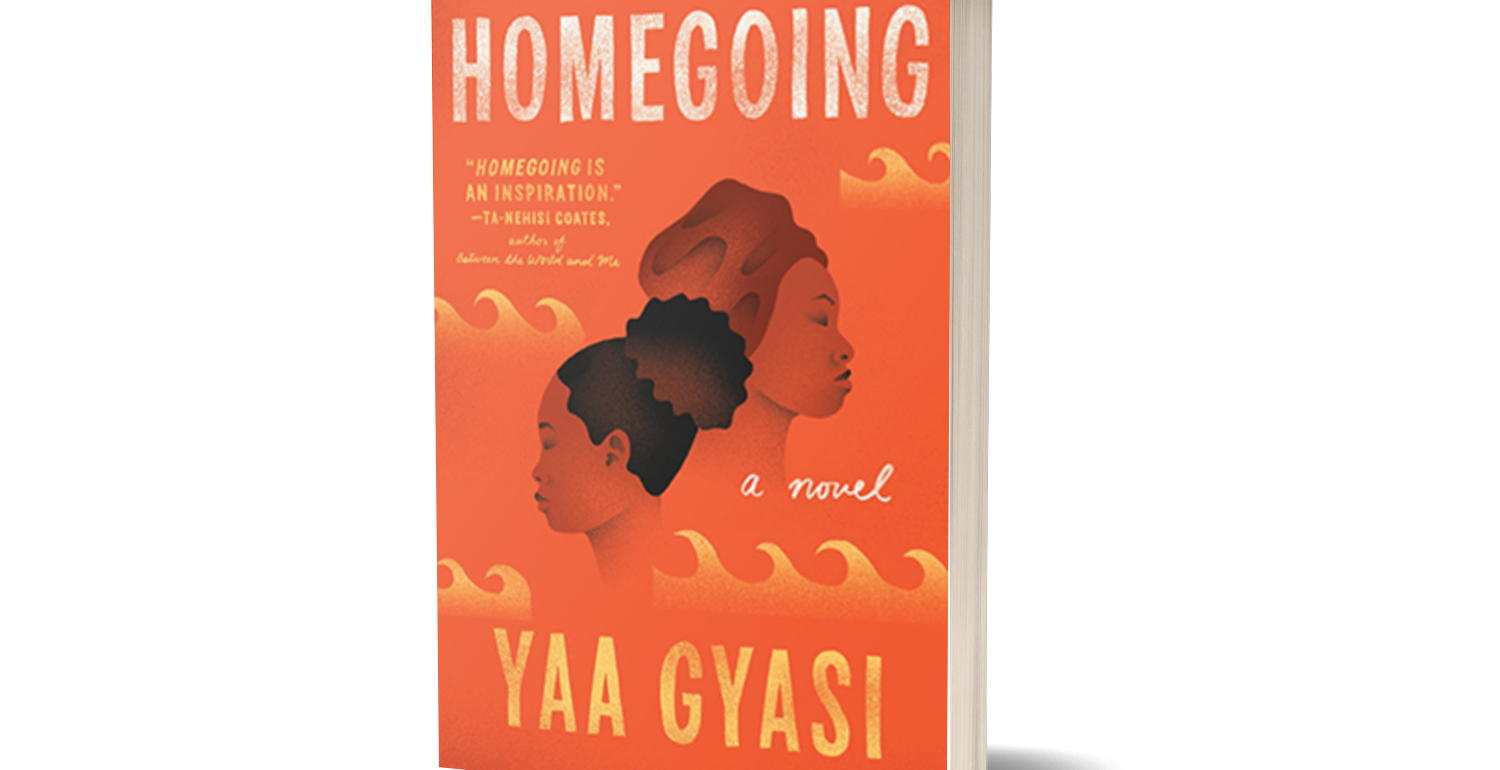— Yaa Gyasi, Homegoing
Big Read Lakeshore 2023 Book
Homegoing
Yaa Gyasi

"No one forgets that they were once captive, even if there are now free."
Book Summary
Told over the course of eight generations, Yaa Gyasi’s Homegoing follows the descendants of two half-sisters—Effia and Esi—who are born in 18th-century Ghana. While Effia marries an Englishman and leads a life of comfort in the palatial rooms of Cape Coast Castle, Esi is captured in a raid on her village, imprisoned in the very same castle, and sold into slavery in America. From there, three centuries unfold. In Gyasi’s deft hands, time is elastic: 20 years pass in a sentence, a single moment stretches across pages, the past folds into the present. “Our history…informs the way that we treat people in the present,” Gyasi said in an interview with TIME. “Every moment has a precedent and comes from this other moment, that comes from this other moment, that comes from this other moment.”
Effia and Esi’s descendants disperse and converge throughout the novel. In Cape Coast, a reluctant son takes on his father’s mantle as a British slave trader, navigating relationships between British companies, the Fante tribes of the coast, and the Asante villages of the inland. As the British end their participation in the slave trade and turn their attention to colonization in West Africa, a young man escapes his family’s shadow for the anonymity of a “small-small” (p. 104) life with the woman he loves. At the height of Asante resistance to British colonization, a young woman searches for her ancestors in the Asante capital city of Kumasi; and in a village empty of its warriors, a mother is haunted by visions of a woman made of fire. Years later, a Catholic school instructor in Takoradi, Ghana, comes to terms with the fires of his own past. In the last chapters of the book, three centuries after Effia first moves into Cape Coast Castle, a young woman from Huntsville, Alabama, returns to Cape Coast to walk in her ancestors’ footsteps.
An ocean away from Cape Coast, a desperate mother risks her life to give her son a chance at freedom in the antebellum South. As the Fugitive Slave Act is voted into law, that son—now a Black dockworker in Baltimore—holds tightly to all that is left of his family. In Pratt City, Alabama, at the turn of the 20th century, a former convict miner joins a nascent labor movement to fight for fair wages and protections for workers. Set against the backdrop of the Great Migration, his daughter dreams of a spotlight on a New York City jazz club stage. During the height of the Civil Rights Movement, a housing worker at the NAACP finds “Harlem and heroin” (p. 257), struggling to find a path for a lifetime of anger. Years later, a Stanford PhD student chases echoes of his family through America’s history, trying to understand the “accumulation of…times” (p. 296) that have shaped his own.
Through the parallel paths of Effia and Esi—and the generations that follow—Homegoing illuminates slavery’s troubled legacy, both for those who were taken and those who stayed. In doing so, the novel interrogates the stories we tell about freedom and captivity and the soul of our nation; stories that have been told, retold, and reified through their retelling. “Whose story do we believe,” asks one of Effia’s descendants late in the novel. “We believe the one who has the power. He is the one who gets to write the story. So when you study history, you must always ask yourself, whose story am I missing?” (p. 226).
About The Author
Yaa Gyasi

Born in Mampong, Ghana, Yaa Gyasi moved to the United States with her family at the age of two. Her early childhood was spent in a series of moves—from Ohio to Illinois, Illinois to Tennessee—until age nine, when her family settled in Huntsville, Alabama. There, Gyasi and her two brothers grew up as each other’s closest companions, navigating the complexities of identity and belonging when few other people in Huntsville shared their experiences of diaspora. “In every other place that we had lived, there was a decent sized West African immigrant community,” she noted to NPR. “But when we got to Huntsville, there was, like, one other family in Meridianville that was Ghanaian and that was it.”
A shy kid, Gyasi found solace and company in books, calling them the “closest friends” (TIME) of her youth. A love of books quickly became a love of writing; the first story she ever wrote received a certificate of achievement signed by actor LeVar Burton, an acknowledgment that she treasured into adulthood. Gyasi continued to write throughout her adolescence and into college, where she began to nurture the seeds of a novel—a story about mothers and daughters, place and migration.In 2009, as a rising junior majoring in English at Stanford University, Gyasi received a research grant to work on her novel in Ghana. There, a visit to the Cape Coast Castle expanded her ideas to a new scale: stories that would kaleidoscope across generations, spanning the history and afterlife of the transatlantic slave trade. Those ideas, however, would take a few years to come to fruition. After graduating from Stanford, Gyasi started work at a tech startup, a job she immediately disliked. She was relieved to be accepted into the Iowa Writers’ Workshop in 2012, where she was finally able to begin to work in earnest on the manuscript that would become her debut novel, Homegoing.
Homegoing won the National Book Critics Circle Award for Best First Novel and was shortlisted for the PEN/Robert W. Bingham Prize for Debut Fiction. In 2017, Gyasi was selected as one of Granta’s Best of Young American Novelists; a few years later, the BBC selected Homegoing as one of the 100 Novels that Shaped Our World. Her second book, Transcendent Kingdom, was shortlisted for the Women’s Prize for Fiction and is a New York Times bestseller. Gyasi now lives in Brooklyn, where she continues to find friendship in books, and to reach for healing, joy, and reunion through her writing.
“The fact of the matter is that for every painful thing that happens in Homegoing there is an equally painful or far worse thing that happened to a real person,” she told NPR. “I wanted to honor that by writing the book in a way that didn’t hide from the painful moments, that didn’t try [to] elide the painful moments, but also one that didn’t relish in the graphicness of some of these situations. And it was a fine balance to keep. But I think as long as I approached it as an opportunity, again, to kind of resurrect the lives of characters who might have gone through these situations and honor those lives…doing the writing felt in some ways as an act of love and justice.”
Reviews
“No novel has better illustrated the way in which racism became institutionalized in this country.”
— Vogue
“When people talk about all the things fiction can teach its readers, they’re talking about books like this”
— Marie Claire
“It’s intelligent…and healing…destined to become a classic.”
— Zadie Smith
“A beautiful story.”
— Trevor Noah
